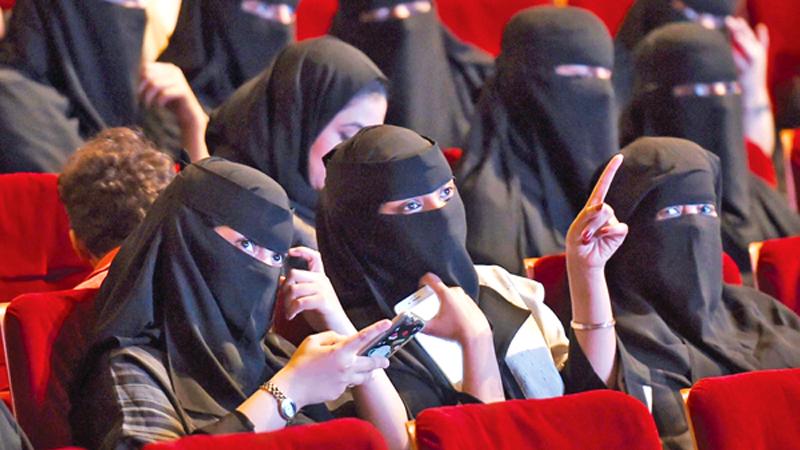
Saudi Arabia is to allow cinemas to open for the first time in 35 years as it continues a push to overhaul its society and image after decades of hardline rule. The first movie theatres will be opened by March and it is intended that up to 2,000 screens will be in place within 12 years.
Announcing the move on Monday, the culture minister, Awwad Alawwad, said: “This marks a watershed moment in the development of the cultural economy in the kingdom. Opening cinemas will act as a catalyst for economic growth and diversification. By developing the broader cultural sector we will create new employment and training opportunities, as well as enriching the kingdom’s entertainment options.”
The announcement was widely welcomed but left some citizens worried that the breakneck speed of change would lead to a pushback in a country that for decades has been one of the world’s most culturally austere and restrictive.
“It’s spectacular news. We are in a state of shock,” said Hisham Fageeh, a Saudi actor and producer, but he expressed concern over censorship, as “any kind of intimacy and love is considered taboo and a moral violation”. Alawwad’s statement gave no details about whether audiences would be segregated along gender lines. It is believed that a partial wall will split men and women, with authorities not yet willing to tackle a taboo about mixing between sexes, which still has wide traction in Saudi society.
Salma al-Saud, 24, a Saudi student, said: “I believe that there must be a wall in the beginning. It’s a huge cultural shift so it would be easier for people to accept. Many are against this move. They believe it’s going to corrupt values if men and women are mixed in together. It is still considered a taboo to mix here. “It should be done very gradually. This is a new era for Saudi and a new step for us. This will show the world that we also have an artistic side. We have to keep progressing.” The rollout of reforms includes allowing women to drive by next June, watering down laws that have severely limited women’s movements without the consent of a male guardian, and allowing women into sports stadiums. It has also led to a crackdown on corruption that has implicated senior royals and some of the kingdom’s most senior businessmen and led to claims that its architect – the crown prince, Mohammed bin Salman – has used the purge to consolidate his rule.
Saudi Arabia’s highest-ranking cleric spoke in January of the “depravity” of cinemas, saying they would corrupt morals, but the authorities appear to be shrugging off the resistance.
Even with the decades-long ban on cinemas, Saudi movie buffs were able to circumvent traditional censors by streaming movies online and watching films on satellite TV. Some young Saudi film-makers have received government support and recognition in recent years. The film Wadjda made history in 2013 by becoming the first Academy Award entry for Saudi Arabia, though it was not shortlisted for a prize.
Although domestic reforms have been cautiously welcomed at home and encouraged from abroad, Saudi Arabia’s newly assertive regional projection has been met with trepidation by some Arab neighbours, who believe Prince Mohammed has over-reached by simultaneously intervening militarily in Yemen, boycotting neighbouring Qatar and demanding the resignation of the Lebanese prime minister, Saad Hariri, amid a heated standoff with Iran.
- Theguardian.com
